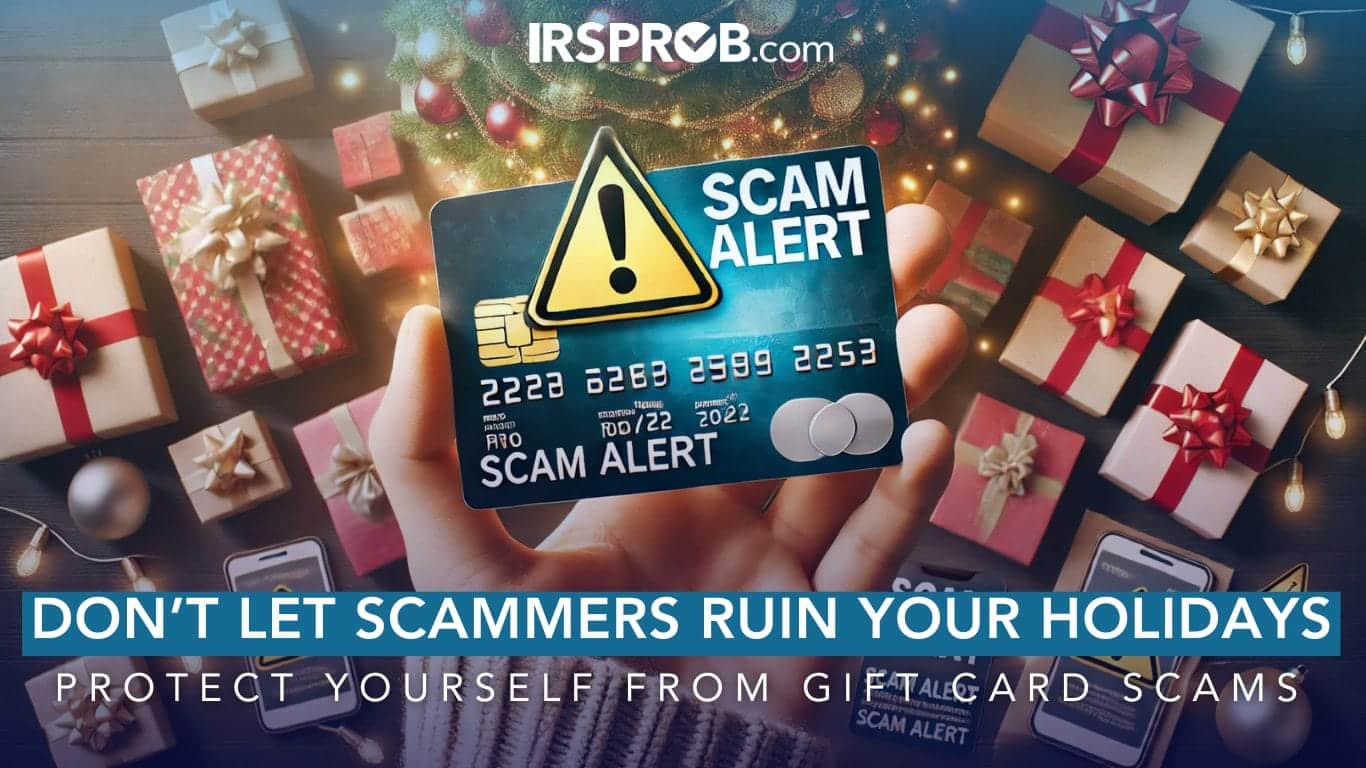
The holiday season is a time of joy and giving, but it also presents an opportunity for scammers to take advantage of unsuspecting taxpayers. Among the many scams circulating during this time, one particularly concerning tactic is the use of gift card scams. It’s critical for business owners and individuals alike to understand how these schemes work and how to avoid falling victim.
Common Holiday Scams Targeting Taxpayers
Scammers are becoming increasingly sophisticated in their methods, often impersonating government or collections officials. Their goal? To convince victims to purchase gift cards and provide the card details as a means of “resolving” a fake debt or issue.
Here’s how the scam typically works:
- The initial contact: Scammers may send emails or make phone calls posing as IRS agents or other official entities. They often use fake caller IDs to make the communication appear legitimate.
- The demand: Victims are told they owe money, often linked to fabricated claims of criminal activity or tax penalties. Scammers may direct their targets to purchase gift cards from multiple stores to avoid suspicion.
- The payoff: Once the victim purchases the gift cards, the scammer requests the card numbers and PINs, allowing them to steal the funds instantly.
Scammers may also:
- Send emails mimicking legitimate companies to steal personal or financial information.
- Threaten victims with arrest, loss of business licenses, or immigration consequences if they don’t comply.
- Claim to represent the IRS and demand immediate payment.
How to Tell If It’s Really the IRS
It’s important to know that the IRS will never:
- Demand immediate payment through gift cards, prepaid debit cards, or wire transfers.
- Call or email taxpayers out of the blue to request payment. The IRS always sends official notices by mail.
- Threaten to involve law enforcement or revoke licenses for failure to pay.
- Deny taxpayers the opportunity to question or appeal the amount they owe.
Recognizing these warning signs can help you avoid falling for scams.
What to Do If You’re Targeted
If you suspect you’re being targeted by a scam, take immediate action:
- Report the incident to the Treasury Inspector General for Tax Administration through the IRS Impersonation Scam Reporting webpage or by calling 800-366-4484.
- File a complaint with the Federal Trade Commission (FTC)
- Contact your state attorney general’s office to report the scam.
Protecting yourself during the holiday season requires vigilance. Always be skeptical of unsolicited calls or emails, and remember: the IRS will never ask for gift cards as payment. By staying informed and cautious, you can enjoy a scam-free holiday season.







